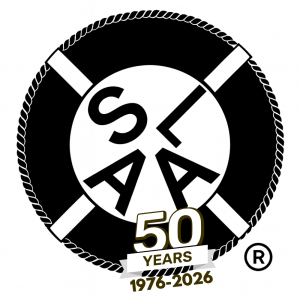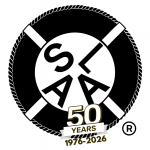We recently started a 7-meeting group, which has one meeting on each day of the week.
At a recent “all meeting / whole community” business meeting, someone stated that they wanted to elect a treasurer immediately during the meeting. This wasn’t on the agenda, and hadn’t been announced anywhere, but a vote was held and a treasurer was elected.
This occurred on the spot, no announcement was made to any of the seven meetings, and no one knew about this election except for the quite small number of people attending that particular business meeting. (17 people attended the business meeting out of a collective meeting attendance of approximately 100-200 people).
Also, no one made any references to any sobriety or relevant financial experience guidelines for the role.
The votes were as follows:
10 “yes” votes (including the chairperson)
7 “abstained”
0 “no” votes
According to Robert’s Rules of parliamentary debate the chairperson is better off not voting, in keeping with the role needing to demonstrate lack of bias.
Please provide Tradition based comments on the following issues:
- The treasurer being elected on the spot, when it was not an agenda item, and hadn’t been announced to the meetings that a treasurer was being sought.
- That the chairperson voted.
- The absence of guidelines for the treasurer’s post.
- The 9 “yes” vote to 7 “abstain” ratio….i.e.: that only 56% backed the candidate for the Treasurer’s position.
No one addressed the issue of needing a co-signer.
Response #1:
In my opinion, this is a product of the Zoom generation of easy to start meetings that lack the preparation and planning of a physical meeting.
Based on Tradition 1 and the stated intent of the meeting being every day, thus all 7 meetings must be unified; Tradition 1 is in play here.
Perhaps SLAA Intergroup can create a document for “Starting a Meeting” as a suggestion of how to prepare for business.
Suggested recommendations might include, but not be limited to:
• Creating by-laws and service positions ahead of time.
• Suggested service positions and by laws.
• Setting a date for the first business meeting to ratify the by-laws, and service positions and format.
• Large meetings and multi day meetings electing a steering committee.
Response #2:
Any two or more persons gathered together for mutual aid in recovering from sex and love addiction may call themselves an S.L.A.A. group, provided that as a group they have no other affiliation (Tradition 3). Looking at the huge variety of 1200 Groups registered with S.L.A.A., there are many that hold more than one meeting a week, including daily meetings.
I am from a relatively small fellowship that tends to Keep It Simple. With our face to face meetings still closed at the moment, our Groups transitioned to Zoom and communicate with members between meetings using WhatsApp. Necessity is truly the mother of invention! Using new technologies, Groups have been able to give all members notice of business meetings, call for Agenda Items and nominations, exchange reports in advance of meetings and circulate Minutes for approval.
Each Group should be autonomous except in matters affecting other groups or S.L.A.A. as a whole (Tradition 4). S.L.A.A. takes a very relaxed view of what rules, if any, Groups choose to organize themselves. Practices vary around the world. There is no one “S.L.A.A. -way” to even hold a business meeting, much less how meetings must be conducted.
S.L.A.A. does suggest that Groups establish Business Meetings and Service Positions including Treasurer, but this is only a suggestion. See page 9 onwards of this excellent Publication in the Group Tool Box section of the FWS website: https://slaafws.org/download/SLAAGroupStarterKit.pdf
It may well be that the new Group functions very well using quite informal volunteering processes.
However, if a Member believes the Group would benefit from more formal processes, they can call for a business meeting to propose new rules of proceedings.
These might include rules to elect officers, sobriety requirements, meeting notice requirements and other practices we have seen work elsewhere, but there are no S.L.A.A.-wide “rules” that must be applied.
Response #3:
Tradition Four provides sound guidance for this situation. It states that each group (or intergroup) is autonomous unless the issue could affect another group or the program as a whole. The decision to elect the treasurer in this fashion does not seem to affect any other groups, so the Tradition supports this process.
Robert’s Rules, while helpful in running a business meeting, are not conference approved, nor are any meetings or intergroup required to abide by them (unless previously agreed to by the group).
However, while the treasurer election process was not in conflict with any Traditions, it would seem to be counter to guidance found in the Twelve Concepts.
Concept Twelve, Warranty “d”, recommends that we reach all important decisions, whenever possible, by substantial unanimity. Having 10 “yes” votes and 7 “abstain” does not seem to meet the intent of “substantial”.
Concept Nine states that good service leaders, along with sound and appropriate methods of choosing them, are at all levels indispensable for our future functioning and safety. This method of choosing a treasurer would seem to be less sound and appropriate than a more planned and structured approach.
It might be good for the group to revisit the issue at the next meeting and more clearly establish requirements and parameters for the position.
Response #4:
I recently started an SLAA meeting, and before getting anything going, the co-founder and I came up with a list of bylaws for the meeting, which would require a business meeting in order to change. We attempted to think of everything, and this, hopefully will help us avoid such awkward situations. I will say, however, that we neglected to include sobriety requirements for any positions, so perhaps this will come back to bite us.
I do, however, have full faith in God to guide our group through the group conscience, as stated in Tradition 2. If the group decides to change something, and the majority vote in favor of it, I have faith that God is guiding my meeting. And if the meeting is not to my liking, I always have the option to leave.
Now, one caveat of Tradition 2, is that the group conscience be one that is informed. A decision is much less likely to include the will of God if it is taken without an informed group conscience. Therefore, I would agree with the submitter of the question that it would be best to inform the group as a whole of the potential changes before a vote is taken, as well as allow for thorough discussion.
When looking at the votes reported, I notice there was not a single ‘No’ vote, yet the person submitting the question seems to be quite against the outcome. Tradition 1 tells us that personal recovery depends on unity, which I interpret to mean as telling me it is my duty to participate. I wonder if the submitter of the question could have spoken up in the business meeting, or voted against. Not given the circumstances of the meeting, I have no idea about the past, but I do know that the future can still be taken into account.
If a meeting I am a member of makes a decision I do not like, I can call for a group conscience and/or a business meeting and share my views. Then I can make a motion to change things. It sounds like the person who submitted the question may wish to submit a motion that the group impose sobriety restrictions on commitments, that the group use Robert’s Rules of Order to organize business meetings, and that motions be submitted and announced in advance of voting, among other possible changes.
The submitter of the question has the opportunity, and perhaps even the duty, to submit these motions, and let their voice be heard at the group level. Perhaps theirs is the final piece of information that will lead the group to have an informed group conscience, and change the meeting for the better.
It also may be, as others have said, that the informal nature of the decision works for this particular group of people. SLAA has no rules, nor any enforcement body. SLAA business meetings are run in any way a group sees fit, and votes are tallied as such. Tradition 4 lets us know that all meetings are autonomous, and may do as they please, in the way they please.
If it were me in the position of the submitter of the question, I would either attempt to make the changes myself that I wanted to see in the meeting structure, or attempt to be in acceptance about the changes put in place. If I could find no success at either of those options, I would consider leaving the meeting.
Response #5:
Each meeting is autonomous and can choose to run their business meeting in the manner they prefer.
Most of the meetings I attend have a sobriety requirement for money positions, require at least 2 meetings worth of announcing any upcoming votes but do not follow Roberts rules of order. None of these are required by the steps or traditions.
The question of substantial unanimity is a bit more troublesome. In your question you seemed to assume that the 7 abstentions should be treated as against the vote. Not being there I don’t know the circumstances. If I’m at a business meeting of a meeting I do not regularly attend, I might express an opinion during the discussion but abstain from voting in the meeting. If you felt that the 10-7 vote did not reflect the group conscience you could call for a revote.
Response #6:
This question describes an interesting and messy situation. It is good to be reminded that each group is autonomous (Tradition Four) and has no requirement to use Robert’s Rules, to apply sobriety requirements, or even to have guidelines or job descriptions. The Traditions are suggestions, points of light to guide us out of the darkness. Tradition Nine guides us to create service boards responsible to those they serve and it appears the group failed to follow this Tradition. Nevertheless, although the situation is unruly, poorly organized, undemocratic, and unfair to other group members there is nothing really contrary to the Traditions themselves.
The Twelve Concepts are more appropriate guidance in this situation. I would suggest this meeting spend some time reviewing and studying the Concepts. Since the group meets seven days a week, one day a week could be devoted to a lead presentation and a discussion of a Concept so that all Concepts could be reviewed in three months. At that point the group may want to reconvene a business meeting — although that could be done at any time — and address each of the concerns listed in the question.


